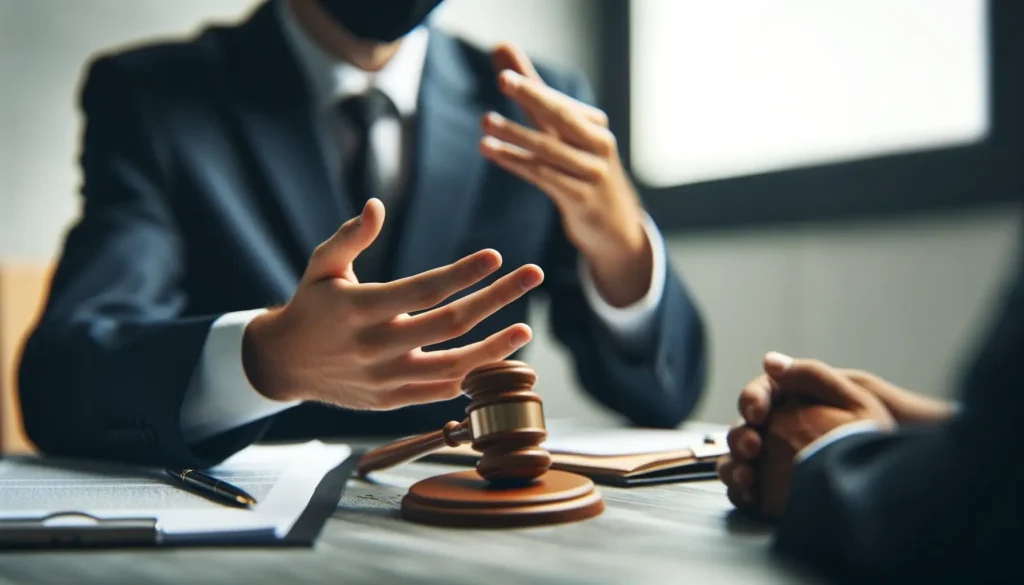![]()
Published on febrero 2, 2024
When you're facing the consequences of an accident or injury, finding the right legal representation is crucial. Your
personal injury lawyer will be your advocate, fighting for your rights and working towards securing the compensation you deserve. But with so many lawyers to choose from, how do you make the right decision? The answer lies in asking the right questions. This guide outlines critical questions to ask a personal injury lawyer during your initial consultation, ensuring you have all the information you need to make an informed choice.
Questions to Ask Personal Injury Lawyer

Understanding Their Experience and Expertise
1. What is your experience with personal injury cases similar to mine?
Experience matters in personal injury cases. Each case has its nuances, from
slip and fall incidents to auto accidents. An attorney with direct experience in cases similar to yours will be better equipped to navigate the complexities of your case. An experienced lawyer will understand the specific laws that apply to your case, the strategies that work best, and the challenges that might arise. This insight can significantly impact the outcome of your case.
2. What are your credentials and success rate in these cases?
Credentials and a track record of success are indicators of a lawyer's capability. Ask about their certifications, education, and professional affiliations. A personal injury attorney with a
high success rate in personal injury cases demonstrates their skill and dedication to achieving favorable outcomes for their clients. While past performance doesn't guarantee future results, it provides a solid basis for expectations.
Assessing Your Case
3. What is the likely outcome of my case?
An experienced personal injury lawyer should be able to assess your case and provide a realistic outlook on the potential outcomes. While they can't predict the future, their expertise will allow them to give you an idea of what to expect, whether it's a settlement or going to trial. This honesty is crucial in setting realistic expectations and preparing for the road ahead.
4. Are there any challenges you foresee with my case?
Every case has its obstacles, and being aware of them from the start can help you navigate the legal process more smoothly. Whether it's issues with proving negligence or dealing with insurance companies, your lawyer should be upfront about any potential challenges and how they plan to address them.
Legal Fees and Costs
5. How do you structure your fees?
Understanding the fee structure is essential before entering into an agreement with a lawyer. Most lawyers work on a contingency fee basis, that means they only get paid if they win your case. Clarify what percentage of the settlement or award they will take as their fee, and ensure there are no hidden costs.
6. Will I be responsible for any costs if we lose the case?
It's vital to know your financial obligations in case your case is not successful. Some attorneys may require you to pay for certain expenses, such as court fees or costs related to gathering evidence, regardless of the outcome. When you hire a personal injury attorney, you want to make sure you're clear on what financial responsibilities you may face.
Communication and Case Management
7. Who will be handling my case?
In some law firms, the person you meet during your consultation may not be the one who ultimately handles your case. It's important to know who will be your primary contact and who will be managing the day-to-day aspects of your case. Ask about the qualifications and experience of all team members involved.
8. How will we communicate throughout the case?
Regular updates and open communication are essential for a successful attorney-client relationship. Discuss how often you can expect updates on your personal injury claim and the preferred method of communication with your personal injury attorney, whether it's email, phone calls, or in-person meetings. Knowing you can reach your lawyer when needed provides peace of mind throughout the legal process.
Timeline and Process
9. What is the expected timeline for my case?
Personal injury cases can vary widely in duration. While some may be settled quickly, others may take months or even years to resolve. Your lawyer should be able to provide an estimated timeline based on the specifics of your case, including factors that could extend or shorten the process.
10. How can I help my case?
Being an active participant in your case can have a positive impact. Your lawyer may suggest keeping detailed records, avoiding social media posts related to your injury, or seeing specific medical professionals. Following the advice of an experienced lawyer can help strengthen your case like nothing else and increase your chances of a favorable outcome.
Conclusion
Choosing the right lawyer is an important decision that can affect the result of your case. By asking these essential questions during your initial consultation, you'll gain valuable insights into the lawyer's experience, approach, and how they'll manage your case. This information is critical in selecting a personal injury attorney who is well-suited to meet your needs, understand your type of case, and advocate on your behalf under personal injury law.
Remember, a good personal injury lawyer will not only have the expertise and track record to handle your case effectively but will also communicate openly, treat you with respect, and be committed for achieving the best outcome for your case.
Contact Us Today
If you or someone you know from Los Angeles is seeking a personal injury lawyer, we invite you to schedule a consultation with our experienced team. At Ariel Law Group, we are committed to providing our clients with the highest level of service and representation.
Contact us today to discuss your case and how we can help you navigate the path to recovery.
